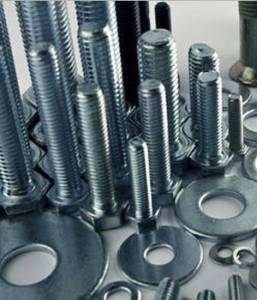Description
Mild Steel: Your Versatile and Reliable Metal Solution
Mild steel, also known as carbon steel, is a foundational ferrous metal alloy renowned for its exceptional balance of strength, weldability, and affordability. Its widespread use across numerous industries highlights its versatility and practicality. This description details its key properties and applications.
Key Properties:
- High Tensile Strength: Mild steel offers excellent tensile strength, meaning it can withstand significant pulling forces before yielding. This makes it ideal for structural applications requiring durability and load-bearing capacity. The specific tensile strength varies depending on the grade and processing.
- Good Weldability: Mild steel welds easily using various techniques (e.g., arc welding, MIG welding, TIG welding), making it a convenient choice for fabrication and construction projects requiring joining of multiple components.
- Excellent Formability: Its malleability allows for easy shaping and forming through processes like bending, stamping, and rolling. This facilitates the creation of complex shapes and designs.
- Cost-Effectiveness: Compared to other ferrous and non-ferrous metals, mild steel is relatively inexpensive to produce and purchase, making it an economically viable option for large-scale projects.
- Machinability: Mild steel is relatively easy to machine, facilitating processes like drilling, milling, and turning, further enhancing its suitability for various manufacturing applications.
- Corrosion Resistance (Moderate): While not inherently corrosion-resistant like stainless steel, mild steel can be treated with coatings (e.g., painting, galvanizing, powder coating) to significantly enhance its lifespan and resistance to rust and degradation.
Grades and Specifications:
Mild steel is available in various grades, each possessing slightly different properties tailored to specific applications. Common grades are defined by standards like ASTM A36 and others. These standards specify the chemical composition, mechanical properties (yield strength, tensile strength, elongation), and other relevant characteristics. The specific grade required will depend on the intended application and required performance characteristics.
Common Applications:
Mild steel's versatility extends to a vast array of applications, including:
- Construction: Used extensively in building frameworks, bridges, and other infrastructure projects.
- Automotive: Forms the basis of car bodies, chassis, and various components.
- Manufacturing: Used in the production of machinery, equipment, and tools.
- Piping and Tubing: Used in various piping systems for transporting liquids and gases.
- Appliances: Found in household appliances and other consumer goods.
- Agricultural Equipment: Used in the construction of tractors, implements, and other agricultural machinery.
Available Forms:
Mild steel is available in a wide range of forms, including:
- Sheets and Plates: Various thicknesses and sizes for diverse applications.
- Bars and Rods: Used for reinforcement, machining, and other purposes.
- Tubes and Pipes: Various diameters and wall thicknesses for fluid handling systems.
- Coils: For efficient processing and fabrication.
Conclusion:
Mild steel's combination of strength, weldability, formability, and affordability makes it a cornerstone material across numerous industries. Its versatility and readily available forms ensure it remains a preferred choice for engineers, manufacturers, and contractors worldwide. Choosing the correct grade of mild steel is crucial for ensuring optimal performance and longevity in the intended application. Consult relevant material specifications and industry standards for appropriate selection.
